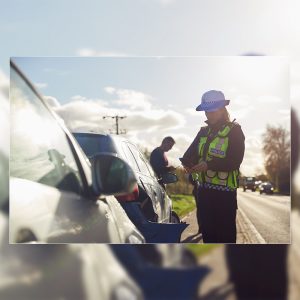The Biggest Challenges Faced by Highway Patrol Officers Today


Highway patrol officers play a vital role in ensuring the safety and security of our roadways. These dedicated law enforcement professionals are tasked with many responsibilities, from enforcing traffic laws to responding to emergencies. However, their job has its challenges. In today’s rapidly evolving world, highway patrol officers are confronted with various obstacles that demand constant adaptation and resilience.
Distracted Driving and Technology
One of the most pressing challenges highway patrol officers face is the growing issue of distracted driving, primarily fueled by the proliferation of technology. Smartphones, in-car infotainment systems, and other electronic devices have led to a disturbing increase in drivers who divert their attention from the road. This poses a severe threat to drivers and others sharing the roadway. Highway patrol officers must find effective ways to detect and deter distracted driving while also navigating the complexities of enforcing laws related to these new technologies.
Impaired Driving
Impaired driving, whether due to alcohol, drugs, or other substances, remains a constant concern for highway patrol officers. Despite public awareness campaigns and stricter penalties, impaired driving continues to claim lives on our roadways. Officers are tasked with identifying bad drivers, conducting sobriety tests, and ensuring these individuals are taken off the road before tragedy strikes. This challenge is compounded by the fact that some impairing substances may not be easily detectable using traditional methods.
Officer Safety
Highway patrol officers face the inherent danger of working in a high-speed, unpredictable environment. Routine traffic stops can quickly escalate into life-threatening situations. The risk of being struck by passing vehicles while on the side of the road or dealing with aggressive individuals underscores the need for constant vigilance and training in officer safety protocols. Balancing the duty to enforce the law with the imperative of protecting oneself can be a delicate task that demands exceptional skill and judgment.
Mental and Emotional Well-being
The demanding nature of the job, coupled with exposure to traumatic incidents, can take a toll on highway patrol officers’ mental and emotional well-being. They are often the first to arrive at scenes of accidents, witnessing the aftermath of devastating crashes. Over time, accumulating these experiences can lead to stress, anxiety, and conditions like post-traumatic stress disorder (PTSD). Addressing the mental health of highway patrol officers is crucial to ensuring their long-term effectiveness and overall quality of life.
Budget Constraints
Highway patrol agencies are not immune to budget constraints and resource limitations. Adequate staffing, training, and equipment are essential for officers to perform their duties effectively and safely. Unfortunately, budget cuts can reduce resources, impacting response times, training opportunities, and overall operational capabilities. Balancing the need for fiscal responsibility with the necessity of providing officers with the tools they need is an ongoing challenge for agencies and their leaders.
Evolving Traffic Laws
Traffic laws are not static; they evolve to reflect changing circumstances and technological advancements. Highway patrol officers must stay informed about these changes and effectively communicate them to the public. Additionally, new laws and regulations can present challenges in enforcement and interpretation. Striking the right balance between upholding the law and ensuring fairness and understanding among motorists is a delicate task that requires both legal knowledge and practical communication skills.
Community Relations and Public Perception
Recently, law enforcement practices and community relations issues have gained significant attention. As law enforcement representatives, Highway patrol officers often find themselves navigating the complexities of maintaining positive relationships with the communities they serve. Building trust and fostering transparency is paramount, especially in an era where incidents involving excessive use of force can quickly escalate into a public outcry. Officers must work to bridge the gap between law enforcement and the community, emphasizing their commitment to safety and justice.
In conclusion, highway patrol officers face many challenges in keeping our roadways safe. From combating distracted and impaired driving to ensuring their safety in high-pressure situations, their job demands unwavering dedication and resilience. By addressing these challenges head-on, law enforcement agencies can work to create a safer and more secure environment for both officers and the communities they serve. Additionally, providing ongoing support, training, and resources is crucial to helping officers navigate these challenges while maintaining their mental and emotional well-being.
As society continues to evolve, so will the challenges highway patrol officers face. We must recognize the importance of their role and the difficulties they encounter daily. By fostering a collaborative relationship between law enforcement agencies, government bodies, and the public. We can collectively work towards safer roadways and more harmonious coexistence between officers and the communities they protect. Through awareness, understanding, and ongoing commitment, we can empower our highway patrol officers to rise above these challenges and continue their essential work with the utmost professionalism and dedication.
